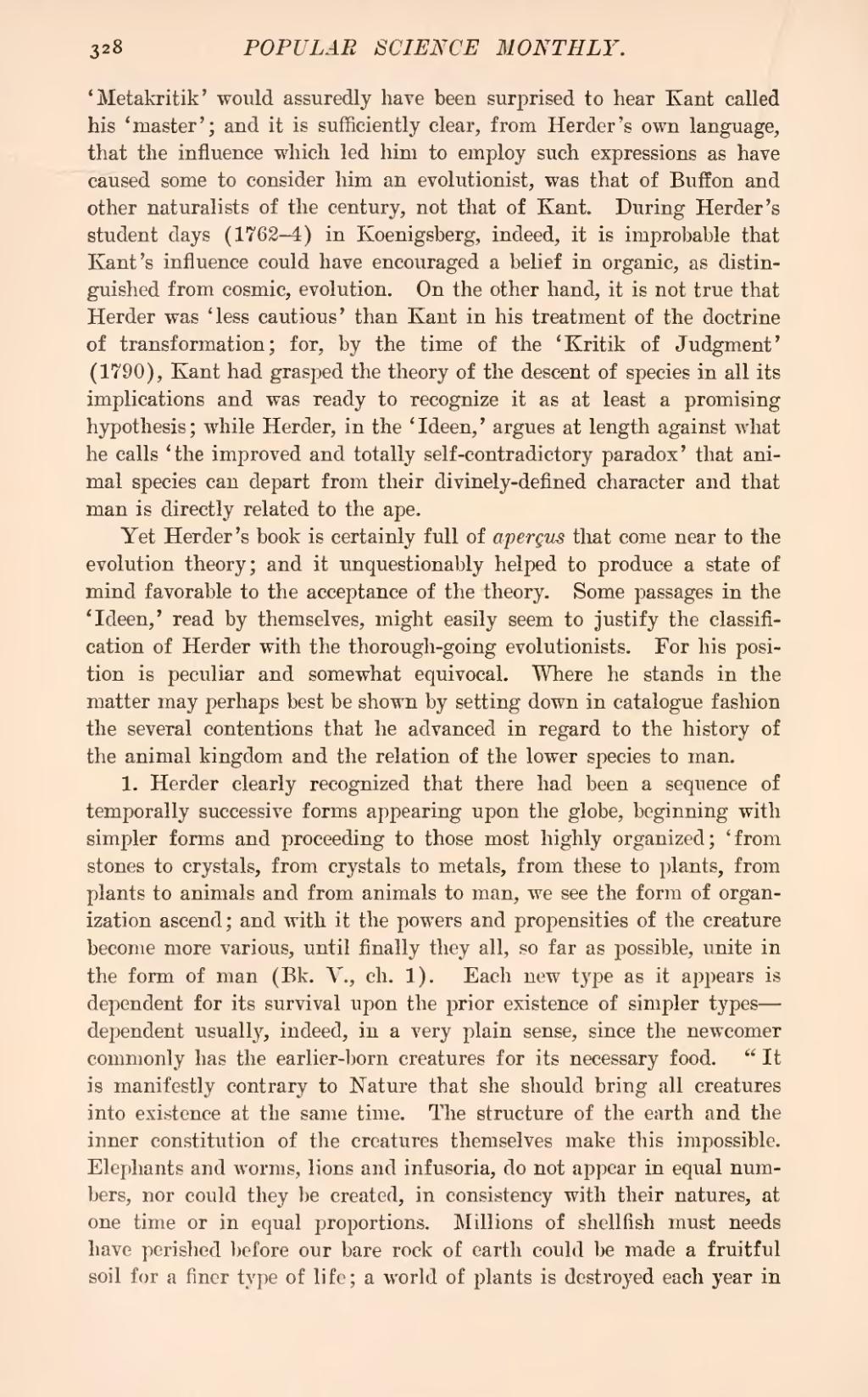'Metakritik' would assuredly have been surprised to hear Kant called his 'master'; and it is sufficiently clear, from Herder's own language, that the influence which led him to employ such expressions as have caused some to consider him an evolutionist, was that of Buffon and other naturalists of the century, not that of Kant. During Herder's student days (1762-4) in Koenigsberg, indeed, it is improbable that Kant's influence could have encouraged a belief in organic, as distinguished from cosmic, evolution. On the other hand, it is not true that Herder was 'less cautious' than Kant in his treatment of the doctrine of transformation; for, by the time of the 'Kritik of Judgment' (1790), Kant had grasped the theory of the descent of species in all its implications and was ready to recognize it as at least a promising hypothesis; while Herder, in the 'Ideen,' argues at length against what he calls 'the improved and totally self-contradictory paradox' that animal species can depart from their divinely-defined character and that man is directly related to the ape.
Yet Herder's book is certainly full of aperçus that come near to the evolution theory; and it unquestionably helped to produce a state of mind favorable to the acceptance of the theory. Some passages in the 'Ideen,' read by themselves, might easily seem to justify the classification of Herder with the thorough-going evolutionists. For his position is peculiar and somewhat equivocal. Where he stands in the matter may perhaps best be shown by setting down in catalogue fashion the several contentions that he advanced in regard to the history of the animal kingdom and the relation of the lower species to man.
1. Herder clearly recognized that there had been a sequence of temporally successive forms appearing upon the globe, beginning with simpler forms and proceeding to those most highly organized; 'from stones to crystals, from crystals to metals, from these to plants, from plants to animals and from animals to man, we see the form of organization ascend; and with it the powers and propensities of the creature become more various, until finally they all, so far as possible, unite in the form of man (Bk. V., eh. 1). Each new type as it appears is dependent for its survival upon the prior existence of simpler types—dependent usually, indeed, in a very plain sense, since the newcomer commonly has the earlier-born creatures for its necessary food. "It is manifestly contrary to Nature that she should bring all creatures into existence at the same time. The structure of the earth and the inner constitution of the creatures themselves make this impossible. Elephants and worms, lions and infusoria, do not appear in equal numbers, nor could they be created, in consistency with their natures, at one time or in equal proportions. Millions of shellfish must needs have perished before our bare rock of earth could be made a fruitful soil for a finer type of life; a world of plants is destroyed each year in

